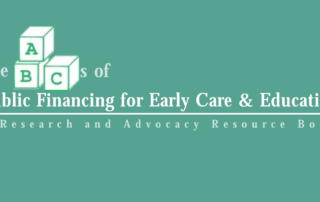Reproductive Rights
The equal participation of women in politics and government is integral to building strong communities and a vibrant democracy in which women and men can thrive. By voting, running for office, and engaging in civil society as leaders and activists, women shape laws, policies, and decision-making in ways that reflect their interests and needs, as well as those of their families and communities.
Today, women constitute a powerful force in the electorate and inform policymaking at all levels of government. Yet, women continue to be underrepresented in governments across the nation and face barriers that often make it difficult for them to exercise political power and assume leadership positions in the public sphere. This chapter presents data on several aspects of women’s involvement in the political process in the United States: voter registration and turnout, female state and federal elected and appointed representation, and state-based institutional resources for women. It examines how women fare on these indicators of women’s status, the progress women have made and where it has stalled, and how racial and ethnic disparities compound gender disparities in specific forms of political participation.

Details
Map Description, legend or descriptive text
Section Links
Political Participation Rank and Score by State
The Cost of Universal Access to Quality Preschool in Illinois
This report provides cost estimates of a proposed plan to ensure that all three- and four-year-old children in Illinois have access to high-quality early education.
The Status of Women in the States: 2002
Women in the United States have achieved great advances and are seeing important changes in their lives. Their access to political, economic, and social rights has improved greatly over the past 20 years. Nonetheless, they do not enjoy equality with men, and they lack [...]
The ABCs of Public Financing for Early Care and Education: A Research and Advocacy Resource Book
This reference book is designed to provide researchers and advocates with tools to investigate issues related to early education and care financing in the United States. These materials can be used to explore various factors that contribute to the current shortage of high-quality early care and education programs.
Status of Women in the States: 2000
An inclusive report that can be used to compare women's progress in each state over time. It provides national maps, data, and rankings for all the 50 states and the District of Columbia for each two-year cycle. All key indicators in the core areas of political participation, employment and earnings, social and economic autonomy, health, and reproductive rights are included.
Equal Pay for Working Families
Equal Pay for Working Families: National and State Data on the Pay Gap and Its Costs
Equal Pay for Working Families
(Based on IWPR Report, Equal Pay for Working Families, by Heidi Hartmann, PhD, Katherine Allen, and Christine Owens)





